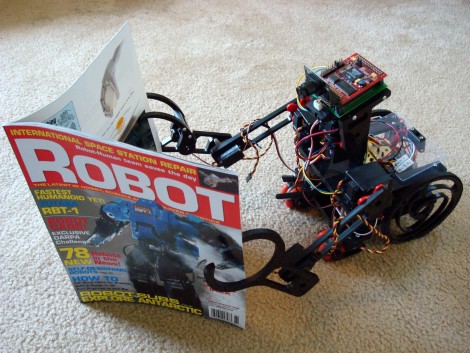Kindroid: Two great tastes that would taste great together


Yesterday Google released the source code to their Linux-based Android operating system for mobile devices, which currently powers the T-Mobile G1 Dream smart phone. To date, no other consumer Android-based device has been released, and no new Android-based device has been pre-announced, but there is currently a lot of activity going on at handset manufacturers to bring new devices to the market. Motorola, for example, is out on the hunt for a lot of Android programmers and has stated their intent to release products which run on that platform, which would seem to indicate that Android-based Razrs and Rockrs are in the offing in the near future.
But Android is not just an OS for mobile phones, it's a system that could be applied to non-phone devices as well, such as set-top boxes, DVRs and even netbooks. It also occurred to me yesterday while writing my review of the device that Android would be perfect running as the OS for Amazon's Kindle.
Click on the "Read the rest of this entry" link below for more.
Amazon's Kindle runs on Linux already, so its not like moving to Android would be a major transition. Indeed, the current hardware specs in terms of CPU and memory would probably have to be increased without significantly "stripping down" Android's base functionality, but moving to Google's platform rather than maintaining their own hardware and software stack makes an awful lot of sense, for a whole bunch of reasons.
For starters, Amazon could concentrate specifically on the e-book "store" end of the business and selling the content itself rather than selling hardware and maintaining a software platform. With an Android-based "OpenKindle" hardware and software reference platform, the Kindle reader application and store browser could be ported to the G1 and other Android-based mobile phones, and other hardware manufacturers could produce Kindle clones that could plug into Amazon's online Kindle store.
This would significantly bring down the cost of the Kindle hardware because more players with compatible readers could enter the mix, and Amazon could lower content prices by not having to maintain the EVDO Whispernet network and pass on that overhead to the consumer as they do now. "Kindroids" would also have access to Google's Android application store and would be able to run e-ink optimized versions of 3rd-party applications, many of which would be Open Source.
Much like mobile carriers make arrangements with RIM to route Blackberry network trafffic to the central RIM NOC, OpenKindles or "Kindroids" could be configured to use Wi-Fi or 3G networks from your existing mobile network. If I own an AT&T Blackberry or an iPhone, or a T-Mobile Android cell phone, I should be able to use a Bluetooth connection on a Kindroid/OpenKindle to use my existing mobile data network. Built-in Wi-Fi in the OpenKindle reference standard should allow users with a Kindle e-Ink optimized version of the Chrome browser to connect to Wi-Fi access points in Starbucks, Dunkin Dounuts, McDonalds, hotels and airport lounges, and Amazon and Google could leverage their partnership to provide free Wi-Fi to OpenKindle users by negotiating with Wi-Fi ISP's like T-Mobile Hotspot.
Should Amazon abandon their own hardware and software stack and join forces with Google to create the "Kindroid"? Talk Back and let me know.